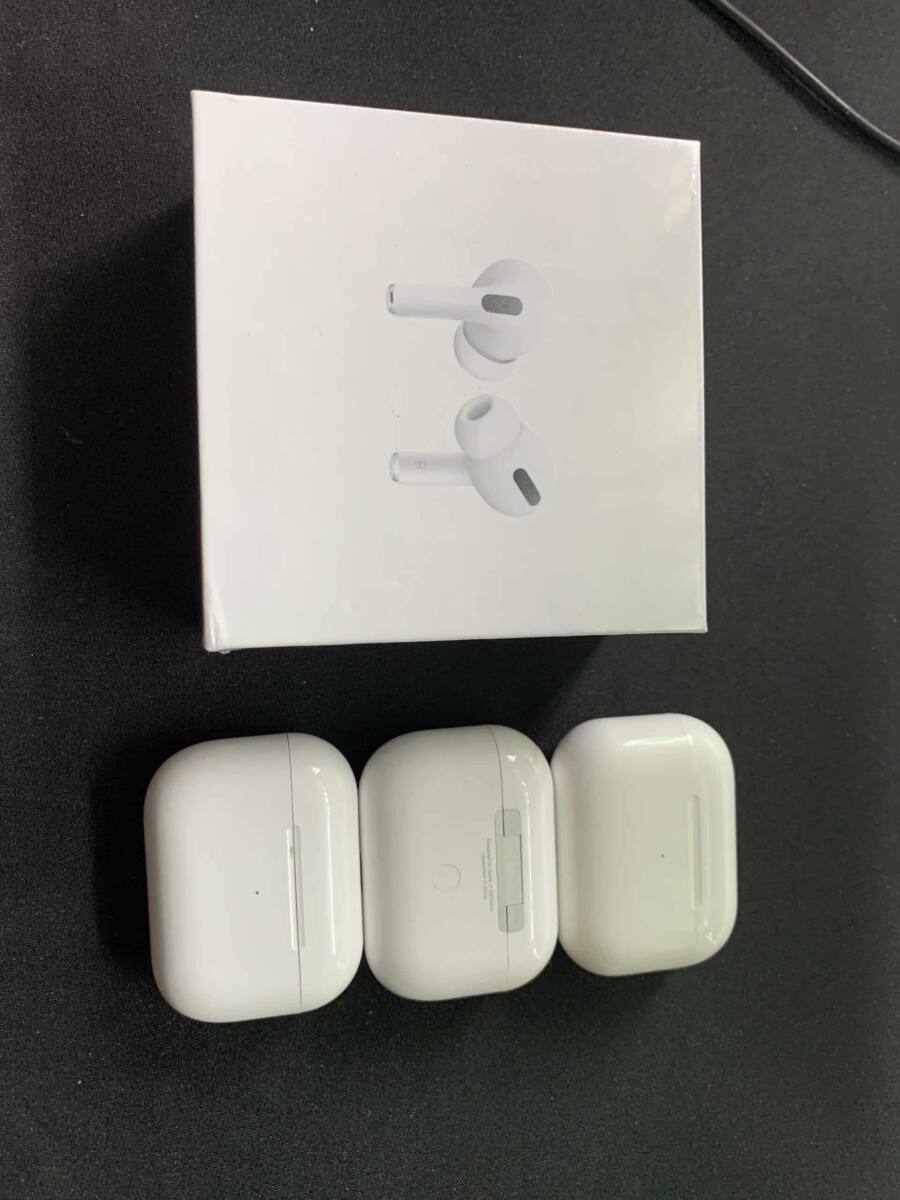Can Fake AirPods Cause Cancer? Examining the Potential Health Risks of Counterfeit Earbuds
Fake AirPods have become increasingly popular due to their lower price point compared to the genuine Apple product. However, concerns have been raised about the safety of these knockoff earbuds. One of the most alarming claims is that fake AirPods can cause cancer.
The idea that fake AirPods can cause cancer has been circulating on social media and other online platforms. This claim is based on the fact that some fake AirPods contain high levels of lead and other harmful chemicals. These chemicals can potentially be harmful if they come into contact with your skin or are inhaled.
While it is true that some fake AirPods may contain harmful chemicals, there is no evidence to suggest that they can cause cancer. However, it is important to be cautious when purchasing knockoff products, as they may not undergo the same safety regulations as genuine products. It is always recommended to purchase products from reputable sellers to ensure your safety.
What you need to know?
Understanding AirPods
AirPods are wireless earbuds that were first introduced by Apple in 2016. They are designed to work seamlessly with Apple devices like iPhones, iPads, and Macs, and are popular among Apple users due to their convenience and ease of use.
AirPods use Bluetooth technology to connect to your device, which means they emit low levels of radiofrequency (RF) radiation. RF radiation is a type of electromagnetic radiation that is also emitted by cellphones and other wireless devices.
However, the levels of RF radiation emitted by AirPods are well below the safety limits set by regulatory agencies like the Federal Communications Commission (FCC) and the International Commission on Non-Ionizing Radiation Protection (ICNIRP).
Furthermore, the RF radiation emitted by AirPods is non-ionizing, which means it does not have enough energy to cause ionization or damage to your cells. In fact, the World Health Organization (WHO) states that there is no convincing scientific evidence that exposure to RF radiation from wireless devices like AirPods causes cancer or any other adverse health effects.
Overall, while AirPods do emit low levels of RF radiation, the scientific consensus is that they are safe to use and do not pose a significant health risk.
What Are Fake AirPods?
Fake AirPods are imitation versions of Apple’s popular wireless earbuds that are designed to look and function like the real thing. These counterfeit AirPods are often sold at a fraction of the cost of the genuine product, making them a popular choice for budget-conscious consumers.
Fake AirPods are typically manufactured in China and are sold online and in street markets around the world. They are often packaged in boxes that look similar to Apple’s official packaging, and may even include fake documentation and accessories.
While some fake AirPods are designed to look and function almost exactly like the real thing, others may have noticeable differences. For example, fake AirPods may have a different charging port, or may not connect to Apple devices as easily as the real AirPods do.
It’s important to note that not all imitation AirPods are created equal. Some counterfeit products may be of higher quality than others, and may even be sold under well-known brand names. However, regardless of the quality or brand name, fake AirPods are still not authorized by Apple and may not meet safety and quality standards.
Health Concerns of Fake AirPods
If you’re considering purchasing fake AirPods, you should be aware of the potential health risks associated with them. While fake AirPods may look and function similarly to the real thing, they are often made with cheaper materials and may not undergo the same safety testing as genuine Apple products.
One of the main concerns with fake AirPods is their potential to emit harmful levels of radiation. Genuine AirPods are designed to emit low levels of radiation that are considered safe for daily use. However, fake AirPods may not have the same radiation shielding and could emit levels that exceed safety standards.
Another health concern with fake AirPods is the materials used in their construction. Some fake AirPods may contain toxic materials such as lead, cadmium, and phthalates, which can be harmful if ingested or inhaled. Additionally, the earbuds themselves may not fit securely in your ears, which could lead to ear infections or other health issues.
Finally, fake AirPods may not be subject to the same quality control standards as genuine Apple products. This means that they may be more likely to break or malfunction, which could pose a risk to your health if they fail while in use.
In summary, while fake AirPods may be tempting due to their lower price point, they come with potential health risks that should not be ignored. If you’re concerned about your health, it’s best to stick with genuine Apple products or other reputable brands that have undergone rigorous safety testing.
Can Fake AirPods Cause Cancer?
With the rise of fake AirPods flooding the market, many people are wondering if these knockoff versions can cause cancer. While there is no concrete evidence to support this claim, it is important to understand the potential risks of using fake AirPods.
One of the main concerns with fake AirPods is the materials used in their construction. Many of these knockoff versions are made with cheaper materials that may contain harmful chemicals. These materials can cause skin irritation, allergic reactions, and even respiratory issues if inhaled.
Furthermore, fake AirPods may emit higher levels of electromagnetic radiation than genuine AirPods. While there is no conclusive evidence linking electromagnetic radiation to cancer, there have been studies that suggest prolonged exposure to high levels of electromagnetic radiation can increase the risk of cancer.
It is also important to note that fake AirPods are not subjected to the same rigorous testing and safety standards as genuine AirPods. This means that there may be unknown risks associated with using these knockoff versions.
In conclusion, while there is no concrete evidence to suggest that fake AirPods can cause cancer, there are potential risks associated with using these knockoff versions. It is important to be aware of these risks and to make an informed decision when purchasing and using AirPods.
Scientific Studies on Radiation and Cancer
When it comes to the potential health risks of wearing fake AirPods, one of the most commonly cited concerns is the risk of radiation exposure. While there is no conclusive evidence that fake AirPods can cause cancer, there have been some scientific studies that have looked at the potential link between radiation exposure and cancer.
One study published in the International Journal of Cancer in 2011 looked at the risk of brain tumors in people who used mobile phones, which emit similar levels of radiation to wireless earbuds.
The study found that there was no overall increased risk of brain tumors in people who used mobile phones, but there was a slightly increased risk in people who used them heavily for more than 10 years.
Another study published in the Journal of the National Cancer Institute in 2010 looked at the link between cell phone use and brain tumors in children and adolescents. The study found no evidence of an increased risk of brain tumors in this population.
While these studies do not specifically address the risks of using fake AirPods, they do suggest that the risk of radiation exposure from wireless devices like earbuds is relatively low. However, more research is needed to fully understand the potential health risks associated with long-term use of these devices.
In conclusion, while there is no conclusive evidence that fake AirPods can cause cancer, there have been some scientific studies that have looked at the potential link between radiation exposure and cancer. These studies suggest that the risk of radiation exposure from wireless devices like earbuds is relatively low, but more research is needed to fully understand the potential health risks associated with long-term use of these devices.
Regulations on Wireless Devices
When it comes to wireless devices, there are several regulations in place to ensure that they are safe for use. In the United States, the Federal Communications Commission (FCC) sets the standards for electromagnetic radiation emissions for all wireless devices, including Bluetooth headphones like AirPods.
The FCC has established specific absorption rate (SAR) limits for wireless devices, which measure the amount of radiation that is absorbed by the body when using the device. These limits are designed to protect the public from the potential harmful effects of radiation exposure.
In addition to SAR limits, the FCC also requires that all wireless devices be tested and certified before they can be sold in the United States. This certification process ensures that the device meets all applicable safety and performance standards.
It’s important to note that while the FCC sets standards for wireless devices, it does not test or regulate the quality of the products themselves. This means that it’s up to consumers to do their research and choose reputable brands and products.
When it comes to fake AirPods, it’s important to remember that these products are not tested or certified by the FCC. This means that there is no way to know for sure if they meet safety and performance standards, and there is a potential risk to using them. It’s always recommended to choose genuine products from reputable brands to ensure both quality and safety.
How to Identify Fake AirPods
If you’re in the market for a new pair of AirPods, you may be tempted to buy a cheaper, knockoff version. However, it’s important to be aware that fake AirPods can come with some serious risks, including potential harm to your health. Here are some tips on how to identify fake AirPods:
Check the Packaging
One of the easiest ways to spot fake AirPods is to check the packaging. Apple’s packaging is known for being high-quality and well-designed, so if the packaging looks cheap or poorly made, it’s likely a knockoff. Additionally, check for any spelling or grammatical errors on the packaging or instructions.
Look for Serial Numbers
All genuine AirPods come with a unique serial number that can be used to verify their authenticity. You can find the serial number on the underside of the lid of the charging case. If the serial number is missing or doesn’t match Apple’s records, it’s likely a fake.
Check the Sound Quality
One of the biggest differences between genuine and fake AirPods is the sound quality. Genuine AirPods are known for their high-quality sound and noise-cancellation capabilities. If the sound quality is poor or the noise-cancellation doesn’t work, it’s likely a fake.
Check the Price
If the price seems too good to be true, it probably is. Genuine AirPods are not cheap, so if you’re seeing knockoff versions for a fraction of the price, it’s likely a fake. Be wary of buying from unauthorized retailers or third-party sellers.
Check the Weight and Build Quality
Genuine AirPods are lightweight and made with high-quality materials. If the AirPods feel heavy or are made with cheap plastic, it’s likely a fake. Additionally, check for any visible defects or inconsistencies in the build quality.
By following these tips, you can help ensure that you’re purchasing genuine AirPods and not putting your health at risk with fake, potentially harmful knockoffs.
Preventive Measures
To reduce your risk of potential harm from using fake AirPods, there are several preventive measures you can take. Here are some tips to help you stay safe:
1. Purchase from reputable sellers
When buying AirPods, make sure to purchase them from a reputable seller. Avoid buying from unauthorized sellers or third-party vendors, as they may sell counterfeit products that could potentially harm you.
2. Check for authenticity
Before purchasing AirPods, check for authenticity by looking for the Apple logo on the packaging and the earbuds themselves. You can also verify the serial number on Apple’s website to ensure that the product is genuine.
3. Avoid using fake AirPods
The best way to avoid potential harm from fake AirPods is to avoid using them altogether. Stick to genuine Apple products to ensure your safety.
4. Dispose of fake AirPods properly
If you do end up with fake AirPods, dispose of them properly. Do not try to resell them or give them away, as this could potentially harm someone else. Instead, dispose of them according to your local regulations for electronic waste.
By following these preventive measures, you can reduce your risk of potential harm from using fake AirPods. Remember to always prioritize your safety when it comes to electronics.
Conclusion
In conclusion, there is currently no evidence to suggest that fake AirPods can cause cancer. While some fake AirPods may contain harmful materials such as lead or cadmium, the levels of these materials are typically low and unlikely to cause harm with normal use.
It is important to note that using any type of headphones for extended periods of time at high volumes can lead to hearing damage. It is recommended to take breaks and listen at a moderate volume to reduce the risk of hearing damage.
If you are concerned about the safety of your AirPods, it is recommended to purchase them from a reputable retailer or directly from Apple. Additionally, it is important to properly dispose of any electronic devices, including fake AirPods, to prevent harm to the environment.
Overall, while fake AirPods may be a cheaper alternative to the real thing, it is important to consider the potential risks and drawbacks before making a purchase.

Tyrone Young is an award-winning author, researcher and the founder of TheMiniBlog. He has been a content marketer for over 10 years and his main goal is to provide readers with quick hacks, guides and reviews on everything Mini. Based out of the UK, Tyrone likes to take long walks on the beach and take care of his two puppies when he’s not busy writing.







